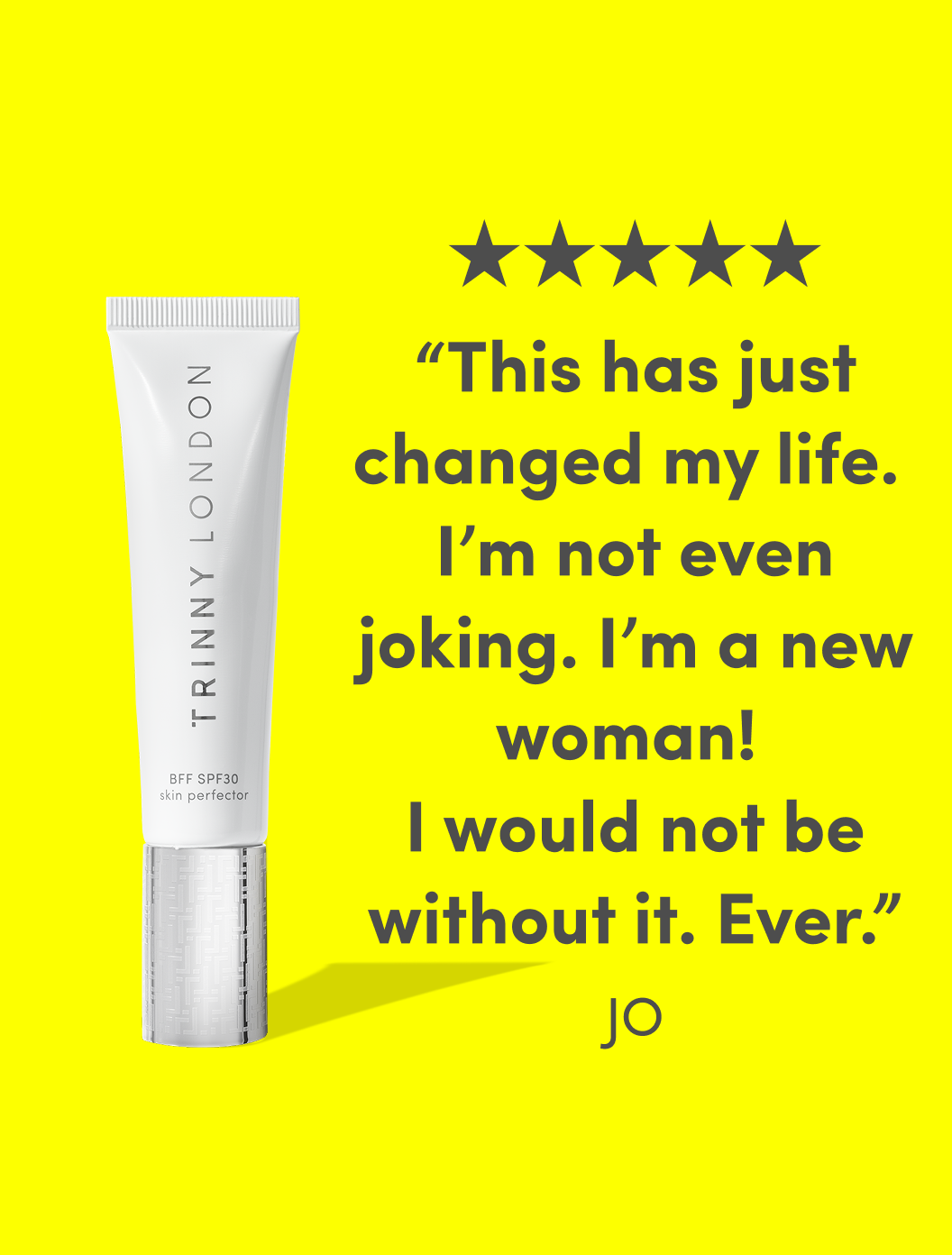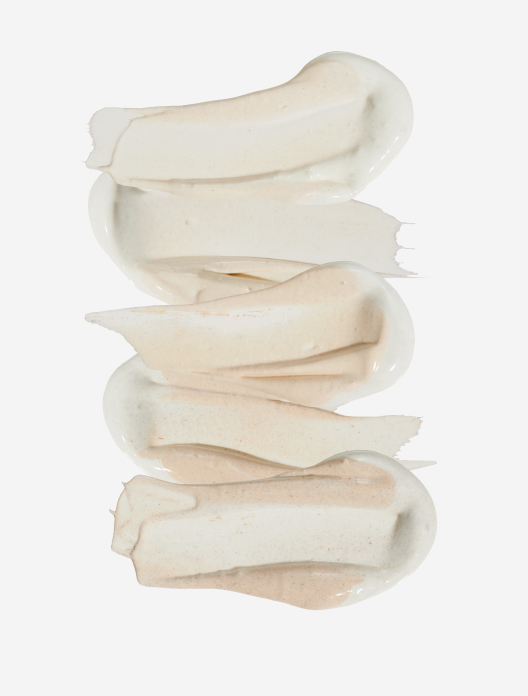


 5 shades
5 shades
BFF SPF 30 Cream
SPF 30 to protect, perfect and give skin a healthy glow
Choose shadeChoose 3 free samples with every order

Prevention is always, always better than cure, and even more so when it comes to your skin. The repercussions of leaving the house without SPF might not be as immediate as the regret of planting a box-fresh trainer into a muddy puddle, but unfortunately will catch up with us all eventually.
Everyone should be wearing a broad-spectrum SPF of at least factor 50 every day – no matter your skin tone, skin type or age. Yep, every day. UV rays can penetrate through clouds, so you’re still at risk of damage on gloomy winter days. Broad spectrum means that the formula protects against two key types of UV rays: UVB, which causes burning, and UVA which is responsible for premature ageing. SPF needs to be applied generously (at least half a teaspoon for your face and neck) and reapplied regularly throughout the day – especially if you have been swimming or sweating.
Daily SPF is crucial for three key reasons:
UV exposure is the main cause of skin cancer. The rays travel from the sun, into our skin, where they can cause damage to the DNA in our skin cells. There are particular factors that can make us more susceptible to developing skin cancer, which include, but are not limited to:
If you have lots of moles
If you have a pale skin tone that burns easily
If you have red or blonde hair
If you have previously had serious sunburn
In these cases, monitoring your skin and paying particular attention to your SPF application is especially important. Using tanning beds or sun lamps, which emit artificial light, can also increase your risk of skin cancer.
Also known as dark, age and liver spots, sun spots appear on areas of skin that tend to get a lot of sun exposure. They’re most common on your face, chest and hands. Not sure how to identify a sun spot? They are areas of darker skin that are bigger than a freckle. They are smooth, flat and uniform in colour. If you’re noticing that your sun spots are growing bigger, becoming raised or developing a jagged edge, seek the advice of a dermatologist.
So, why do sun spots form? Whenever our skin is exposed to the sun, it starts to produce extra melanin, the pigment that gives our skin its colour. In some cases, our melanocytes (the cells that make melanin) go into overdrive, creating extra pigment. Think of it like a malfunctioning machine in a factory, suddenly firing out way more product than is needed. Using SPF will help to prevent this from happening. If you already have existing sun spots, ingredients like retinol and vitamin C will help them fade.
80-90% of premature ageing is caused by the sun. When we’re younger, collagen and elastin are in high supply, giving our skin its bounce and plumpness. Their levels naturally deplete as we age, but exposing our skin to the sun can cause them to break down at a much faster rate. Think of it like eating an ice-cream on a warm day. It’ll melt with increasing speed if you’re sitting outside in the blazing sun. Without collagen for support and elastin for elasticity, skin begins to sag, with fine lines and wrinkles becoming more prominent.
Shop the article



 5 shades
5 shades
SPF 30 to protect, perfect and give skin a healthy glow
Choose shadeRead, watch and be inspired...